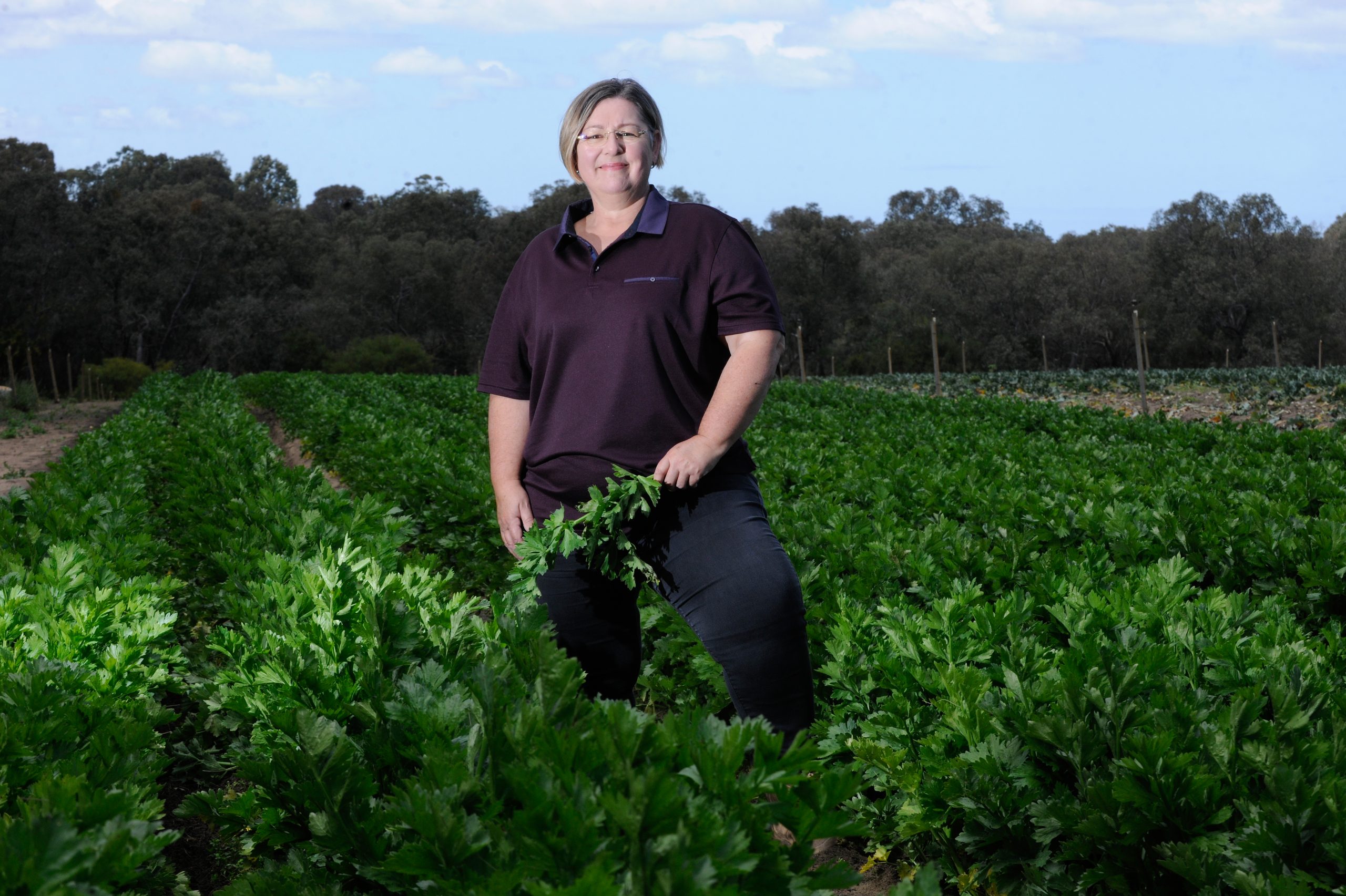Gingin Organics: An ever-evolving growing operation
Lynda Harding and her husband, Noel, have been growing fresh produce in Western Australia since 2003. Since then, the pair have reinvented their business – they started as a stone fruit growing operation to becoming an organic vegetable farm that produces lines for Woolworths’ Macro brand. Michelle De’Lisle reports.
Gingin Organics is a Certified Organic vegetable farm located in Neergabby, just over 80 kilometres north of Perth.
It grows a range of vegetables throughout the year and on a seasonal basis. Vegetables such as carrots, celery, kale, broccoli and lettuce are grown all year; others such as cauliflower, cabbages and zucchini can be grown seasonally and when they fit into the rotation. Gingin Organics grows, harvests, and prepacks all its vegetables for Woolworths’s supermarkets under their Macro brand.
Lynda Harding is the General Manager of the operation, which encompasses a range of jobs from running the farm and supervising employees to human resources and overseeing the business’ finances. There is never a dull moment, as Lynda describes a typical day.
“My day usually starts with a quick check for order changes that may have occurred overnight that may affect the picking program that day. Orders are usually stable but the day you don’t check is the day there is a change!” she says.
“Then I check for any personnel messages that may impact on the days’ work. I make any changes to the pick sheets and packing plan that may have been affected, including putting myself on the picking team if short of crew.
“I do a quick check on the first crop to be picked for the day, just to be sure nothing is wrong. As I said, things can change overnight – particularly if there has been inclement weather or hot conditions.
“I meet and greet with the Field Leading Hand for a start-up meeting and check in with the Packhouse Manager, and we address any issues. I perform crop assessments and scouting for supply continuity – identifying any gaps or gluts – followed by program planning for seedling deliveries and specials, review of trials, and forward planning.”
Lynda reviews completed documents that have been submitted by the packhouse and picking crew and makes sure picking and packing is on-time.
All the while, she juggles this with the school run for her teenage children Grace, 16, and Luke, 14, along with family duties and office work.
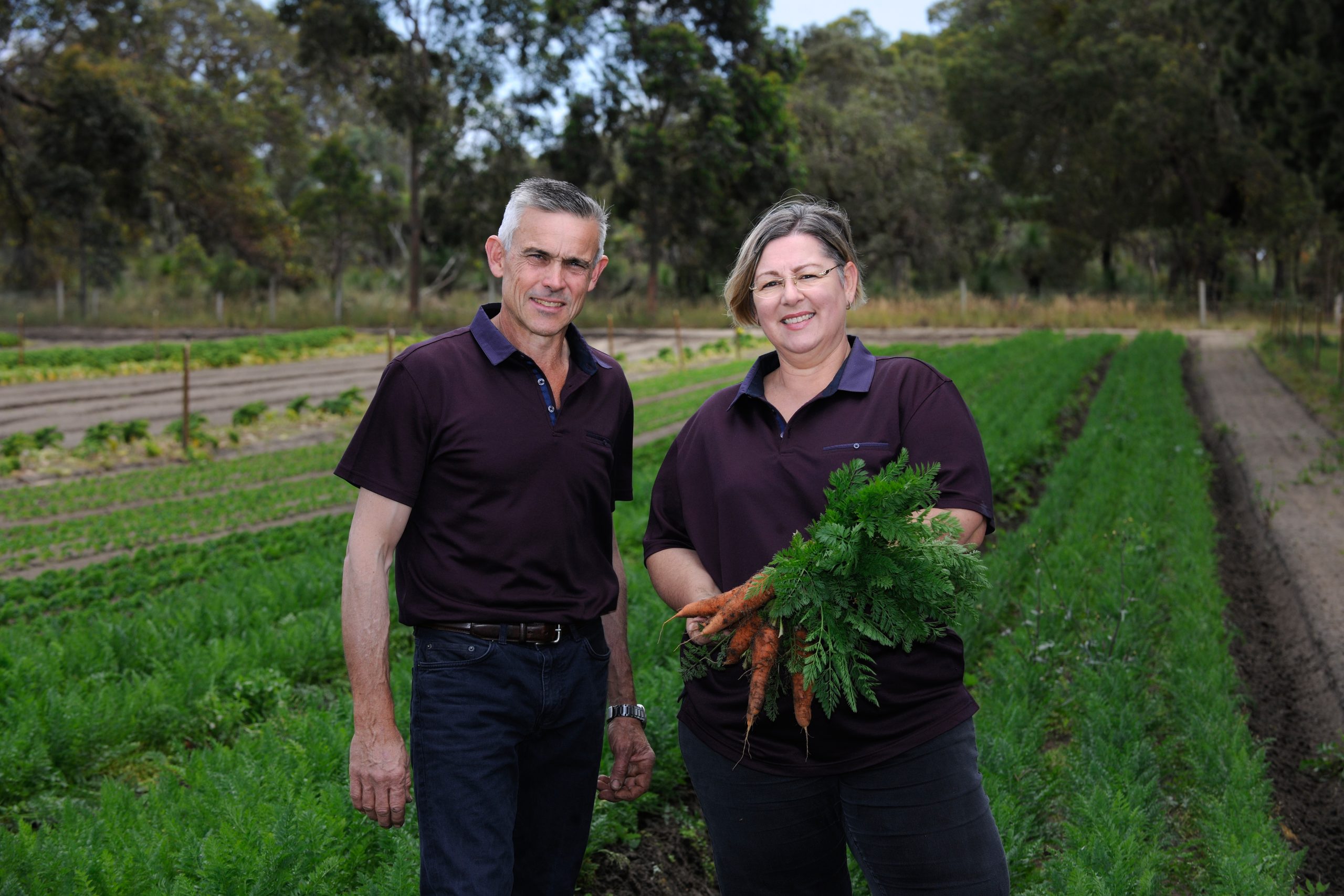
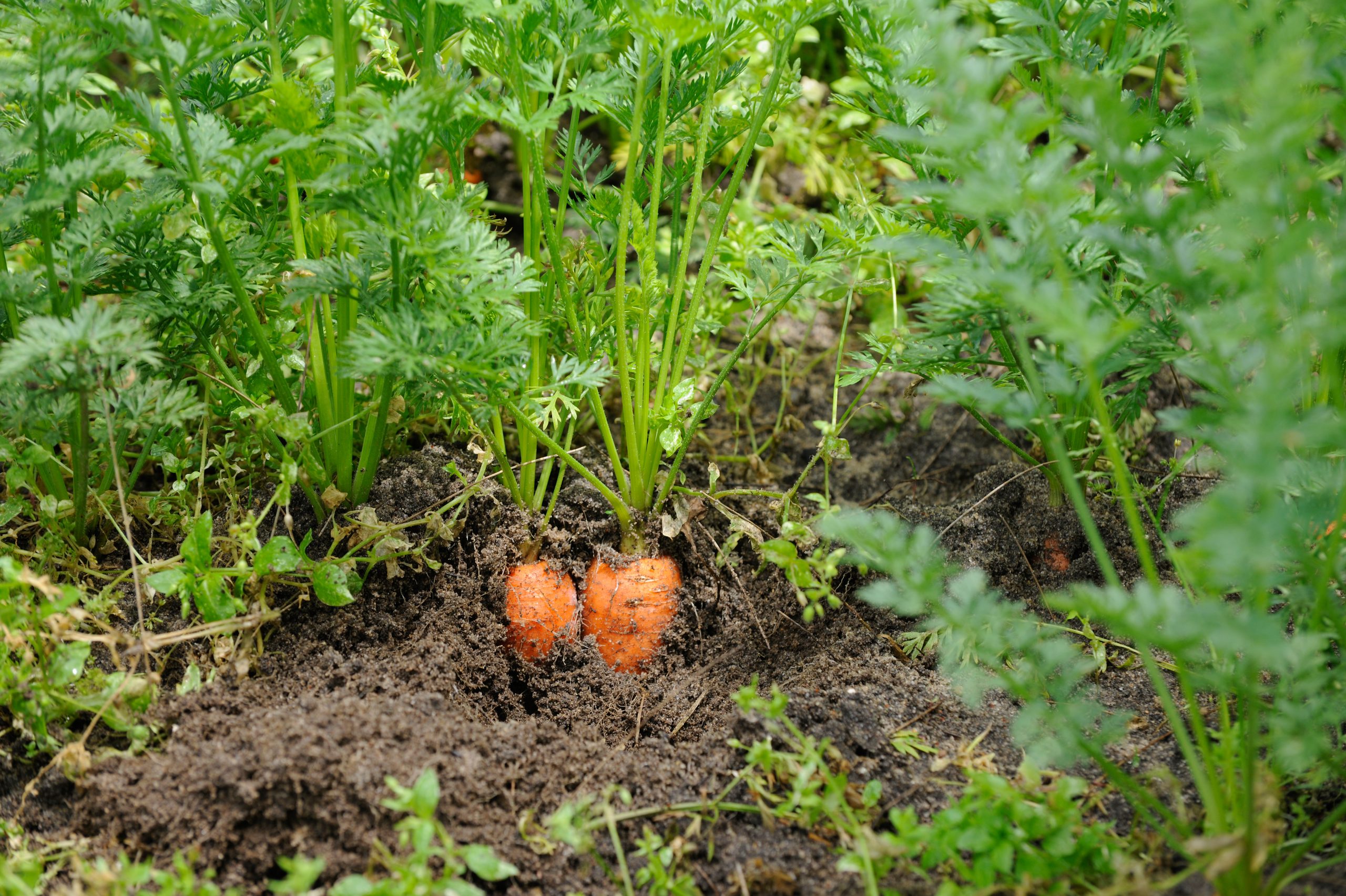
Story behind the business
Lynda and her husband Noel began the business in October 2003 as a conventional low-chill stone fruit orchard producing peaches and nectarines.
“I learnt very quickly that the way we were growing fruit was not sustainable in terms of our personal health, environmentally or economically,” Lynda says.
“We commenced growing stone fruit organically and achieved Organic Certification in 2010; however, we found that we just had too much fruit for a limited market. As the fruit was low-chill stone fruit varieties, we were unable to ‘export’ them to Australia’s east coast due to quarantine requirements, as they did not retain the required shelf-life.
“In 2012, I started looking for other options. At this point – even though we were Certified Organic – the farm was not paying for itself, and Noel was having to work away to supplement it. After speaking with the local market agents, I determined there was a gap in supply of lettuce and kale and started growing them.”
Growing vegetables was a steep learning curve, says Lynda.
“Vegetables need more regular management than trees. With trees, it’s like prune, feed, thin, feed, harvest – take six months off – and start again. Whereas vegetables are like plant, feed, weed, feed, weed, feed, harvest, plant – and maybe take Christmas off.
“However, the advantage of vegetables is that if something goes wrong such as pest or disease incursion, it can be mowed i in and planted again.”
Gingin Organics started supplying vegetables to the general marketplace in early 2012 but a year later, it was realised that the marketplace for organics was too erratic to be sustainable.
“I contacted all the major supermarkets to see if there was interest in Gingin growing for them and only one supermarket took us seriously,” Lynda says.
“In mid-2013, we were in touch with an organic produce expeditor who helped organise the supply of our stone fruit to Woolworths for the 2013 season, so we were finally able to move the bulk of our fruit into the supermarket.
“Unfortunately, it was still not enough economically and with the demand for organics growing, we were able to work with Woolworths to create a plan to grow and supply kale.”
“I learnt very quickly that the way we were growing fruit was not sustainable in terms of our personal health, environmentally or economically."
Facing challenges
Lynda says pests and weeds are the among the biggest challenges for any organic vegetable grower. This is along with maintaining supply continuity of a good quality product.
“We manage these issues by keeping our soil healthy, which is important for disease control. Integrated Pest Management is an important component of pest management, and crop scouting is another critical task that helps with the prevention of outbreaks,” Lynda says.
Hard work is key to disease resistance and ongoing sustainability on the farm.
“We use biologicals to create a healthy soil so that we can grow healthy plants. Gingin maintains a good balance and level of beneficial (good) bacteria, fungi, protozoa, and nematodes. We also stopped disturbing our soil by hoeing and usually only disturb the top three centimetres of the soil,” Lynda explains.
When it comes to R&D, Lynda believes investigating and developing affordable robotic and mechanical harvesting for the industry is important, particularly for small to medium sized businesses.
“Not many businesses can afford million dollar harvesting equipment, and I think even the bigger growers would struggle for a return on such large capital investments. Making this equipment available at an affordable price would help to address the current labour shortages,” she adds.
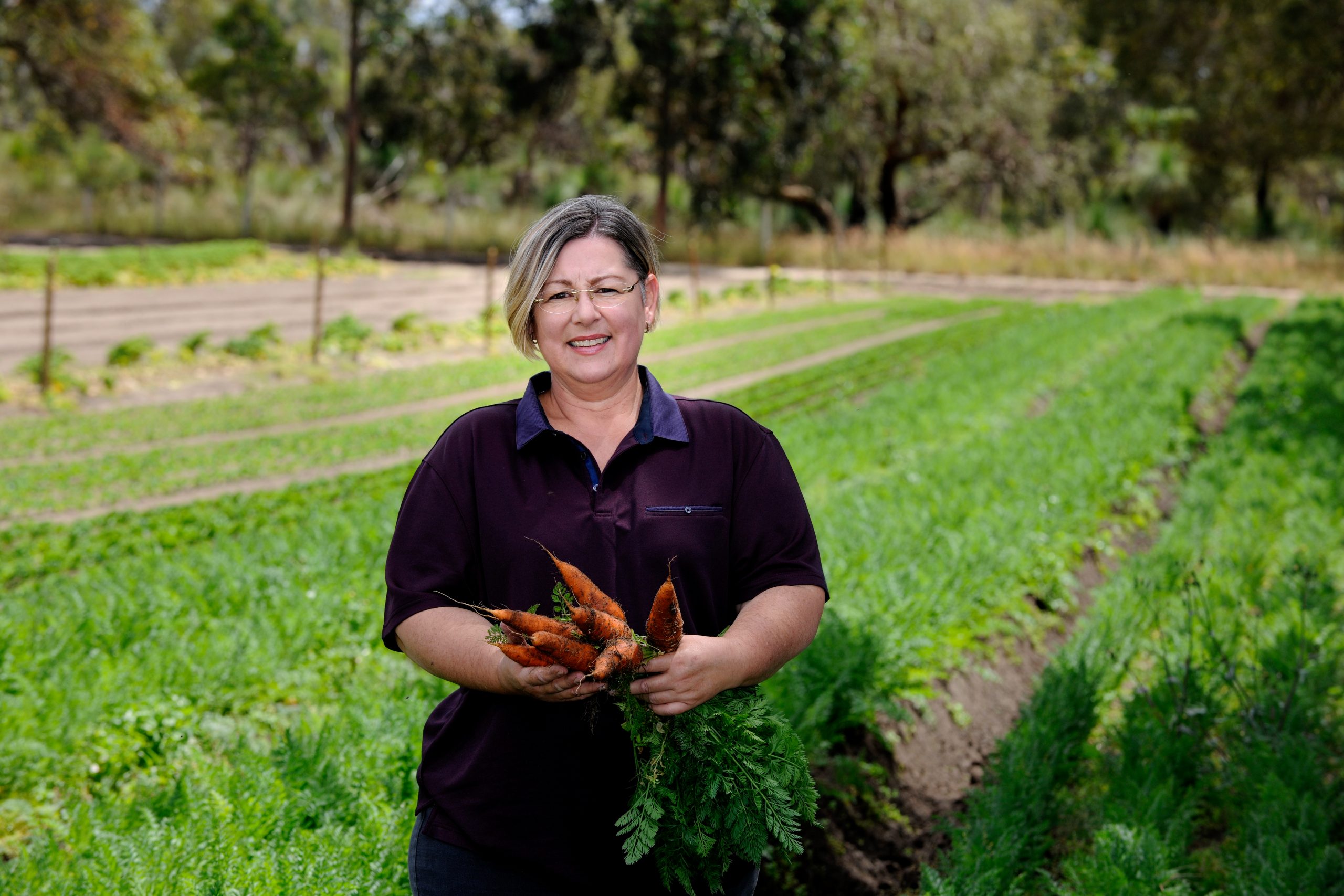
An organic passion
Although Lynda works tirelessly and the days can be long, she enjoys the challenge of seeing the produce through from seedling to store as well as working to improve Gingin Organics’ process lines.
The operation is focused on increasing productivity so it can reduce the economic cost of organic produce. This includes introducing machinery to streamline the cutting and trimming process of vegetables such as celery and broccoli, and it is hoped that these will be in place by Christmas.
Becoming a Certified Organic grower also has its challenges – and achieving Certified status in 2010 was a proud moment for Lynda and Noel. This followed three years of implementing organic practices and on-farm management.
“Because your way of growing changes, you’re dealing with pest and disease incursions. We managed to get to the end of the three years without having to go backwards – like having an incursion where you must use chemicals that put you back to being a conventional grower,” Lynda says.
“It was really hard to do, but we put in the work and got it done.”
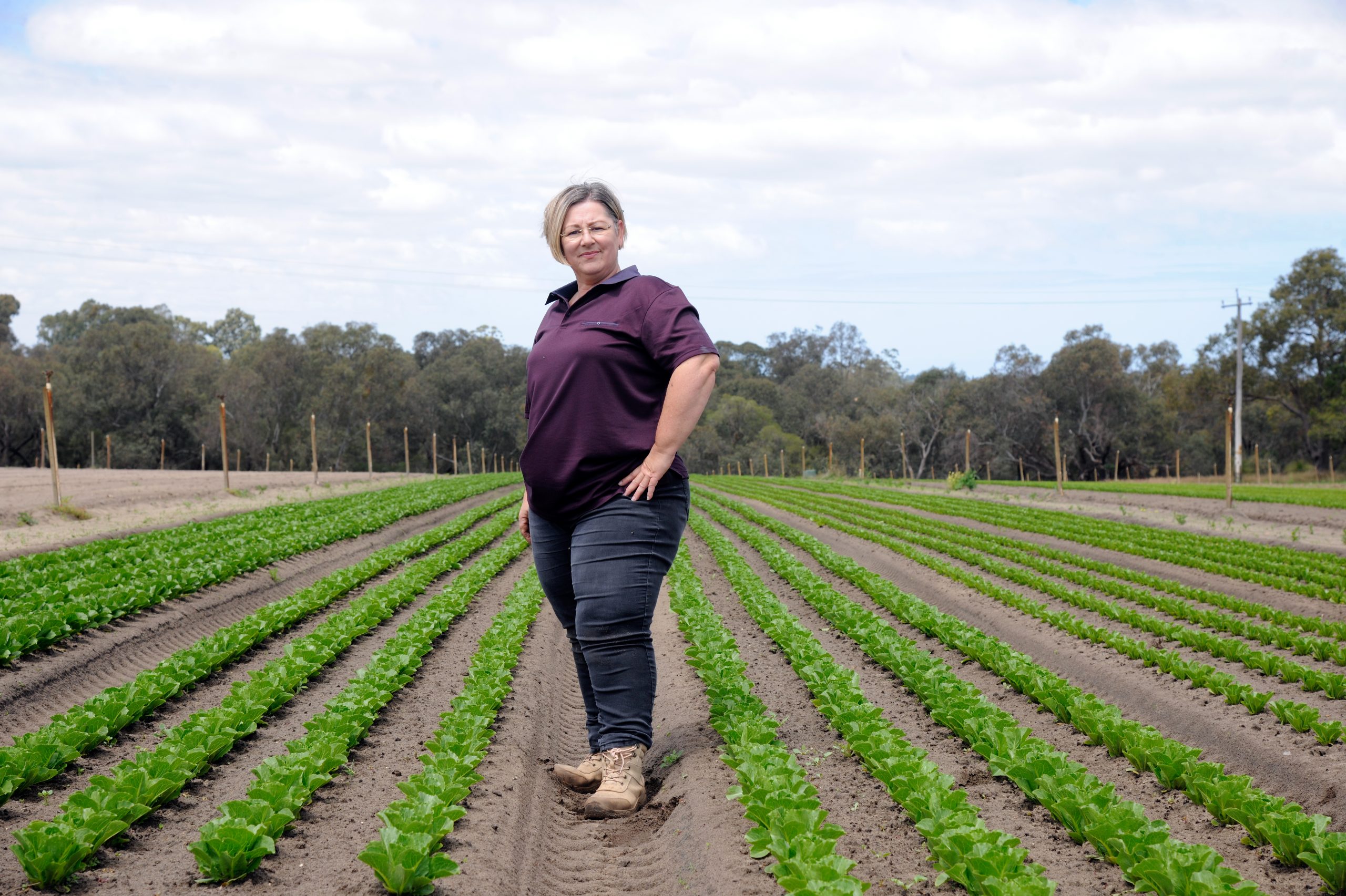
This grower profile first appeared in the leading magazine for the Australian vegetable industry, Vegetables Australia. If you’d like to subscribe to receive a new edition of Vegetables Australia in your mailbox every three months, email communications@ausveg.com.au. Please include your postal address.
Photography credit: Chris Kershaw.

